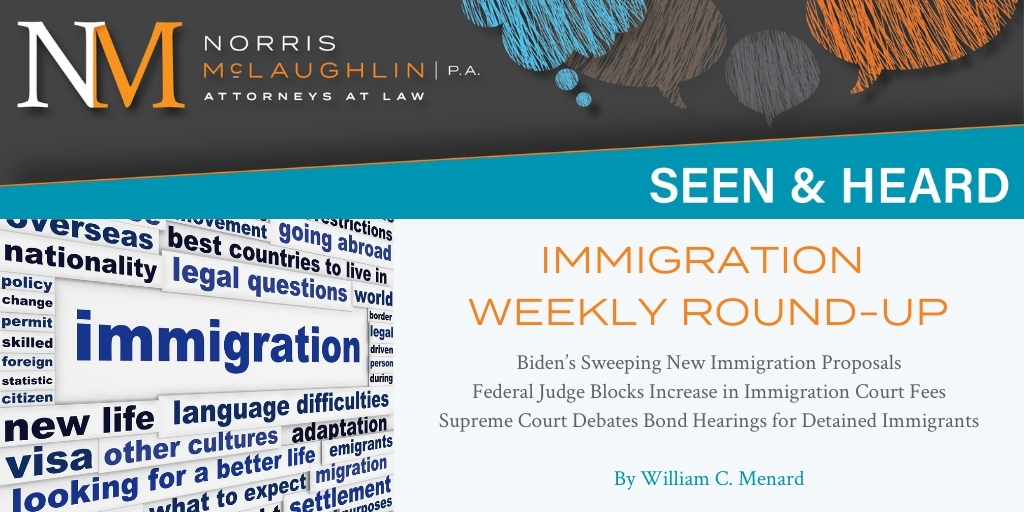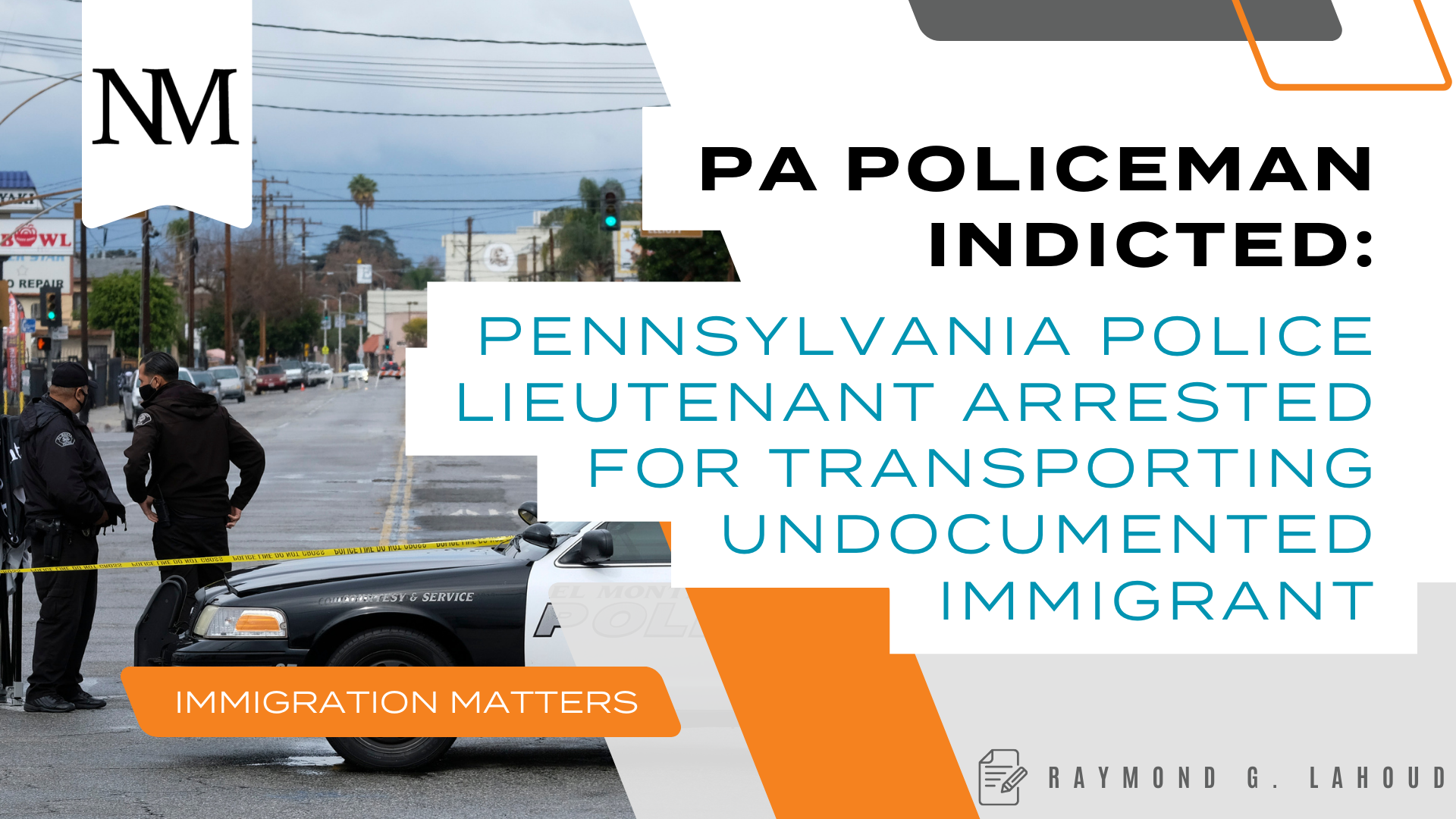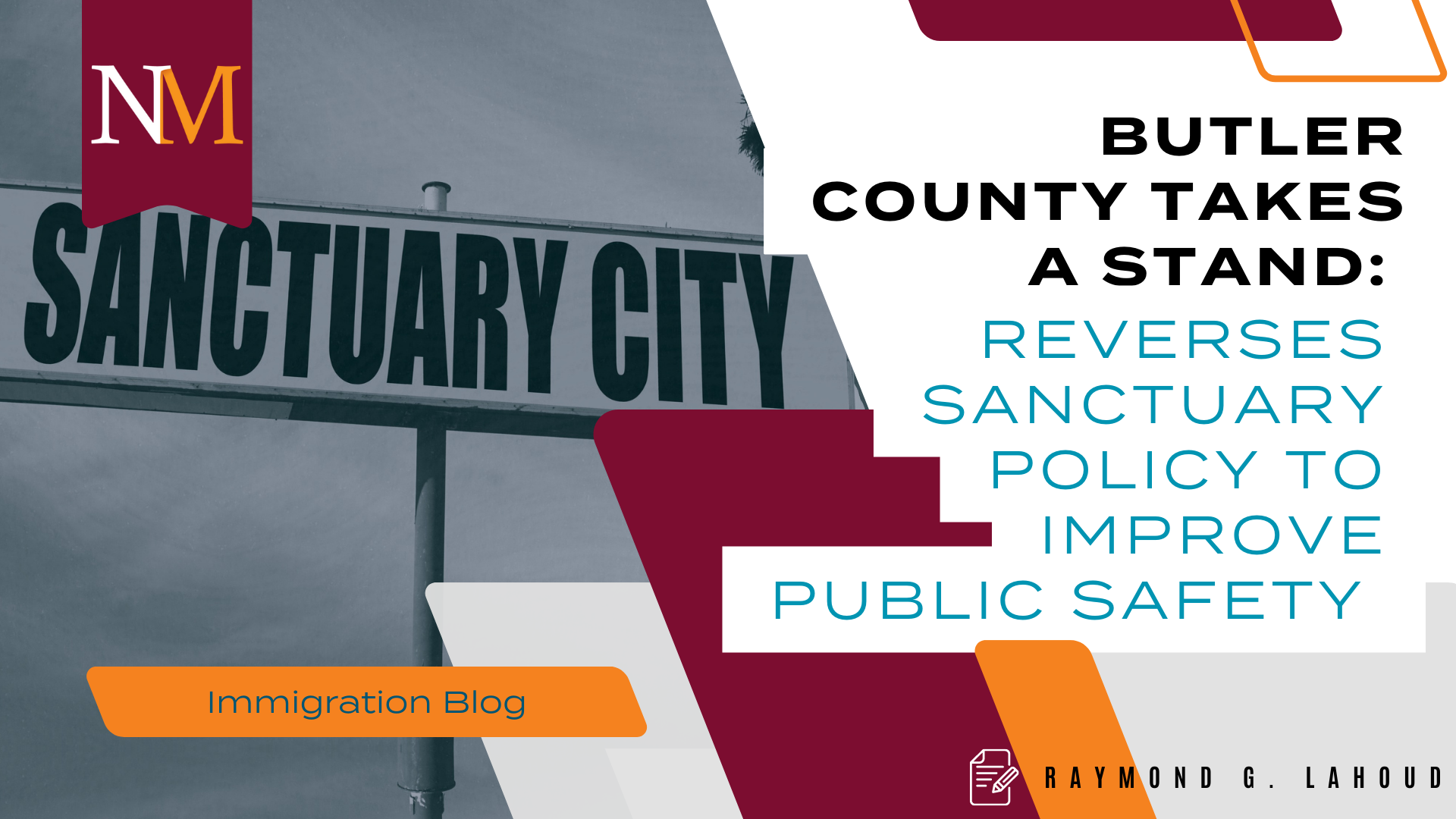Immigration Weekly Round-Up: NJ Prison No Longer Detaining Immigrants; Federal Felony for Unlawful Reentry to U.S. Found Unconstitutional; Biden Policy Limiting Detention Struck Down

Essex County Prison No Longer Housing Immigrant Detainees
Essex County Prison in Newark, New Jersey, has officially ended its detention of individuals for federal immigration violations. The County Chief Executive, Joseph N. DiVincenzo, stated that as of Tuesday this week, the prison – located in the third-largest county in the state – no longer had any immigration detainees. Essex County officials announced in April that it would be canceling its contract with Immigration and Customs Enforcement (ICE) to house detainees at the prison and has moved detained individuals out of the prison over the past four months.
Nevertheless, significant questions regarding the detention of immigrants living in New Jersey still remain. Many of the detained individuals have not been released but rather moved to other prisons, raising concerns that detainees are now farther away from their families and attorneys. Additionally, although several prisons in New Jersey have started to move toward ending detention for immigration purposes, the Elizabeth Detention Facility in Elizabeth, New Jersey, operated by a private detention company, CoreCivic, just entered into a contract with the ICE to continue immigration detention through 2023. It is therefore unclear how many individuals will continue to be detained in the state moving forward.
The Norris McLaughlin Immigration Law Blog, “Immigration Matters,” will continue to cover this issue as it develops.
Federal Judge Strikes Down Law Making Unlawful Reentry a Felony
Nevada U.S. District Court Judge Miranda Du ruled this week that Section 1326 of the United States Code, which makes it a federal felony to unlawfully reenter the United States after a prior unlawful entry or removal order, was unconstitutional. Judge Du found that the law was “racially discriminatory,” specifically intended to target and punish people of Latinx backgrounds, and has in practice had a “disparate impact on Latinx persons.”
In her decision, Judge Du noted that the law was initially enacted in the 1920s, at the same that Congress was enacting laws that allotted 96% of all legal immigration to people of European descent, and that both “nativism and eugenics” were heavily influencing legislative processes.
It is not yet clear if the Department of Justice will appeal the decision, although Julian Castro, a Democrat from Texas who recently ran for president and derided the law on the campaign trail, wrote that “I doubt the Biden DOJ will want to defend [the law] in the appellate court.”
Texas Court Rescinds President Biden Limitation of Immigration Arrests
On Thursday, the Southern Texas U.S. District Court Judge Drew Tipton ruled that President Biden’s restrictions on which immigrants could be detained by ICE violated federal law. The ruling will allow ICE to arrest and detain a larger group of immigrants in the United States.
President Biden had implemented a policy instructing ICE to limit arrests to those immigrants who were deemed “priorities,” such as those with significant criminal backgrounds or who were otherwise a threat to national security or public safety. However, Judge Tipton ruled that the policy contradicted federal statute, which states that law enforcement “shall detain” certain individuals, including some outside the scope of President Biden’s enforcement policy, and left no room for discretion.
The Norris McLaughlin Immigration Law Blog, “Immigration Matters,” will continue to follow this story, including whether President Biden appeals the decision and how his administration adjusts its enforcement priorities.
If you have any questions about this blog post or any other immigration concerns, please feel free to contact me at wcmenard@norris-law.com or 484-544-0022.




